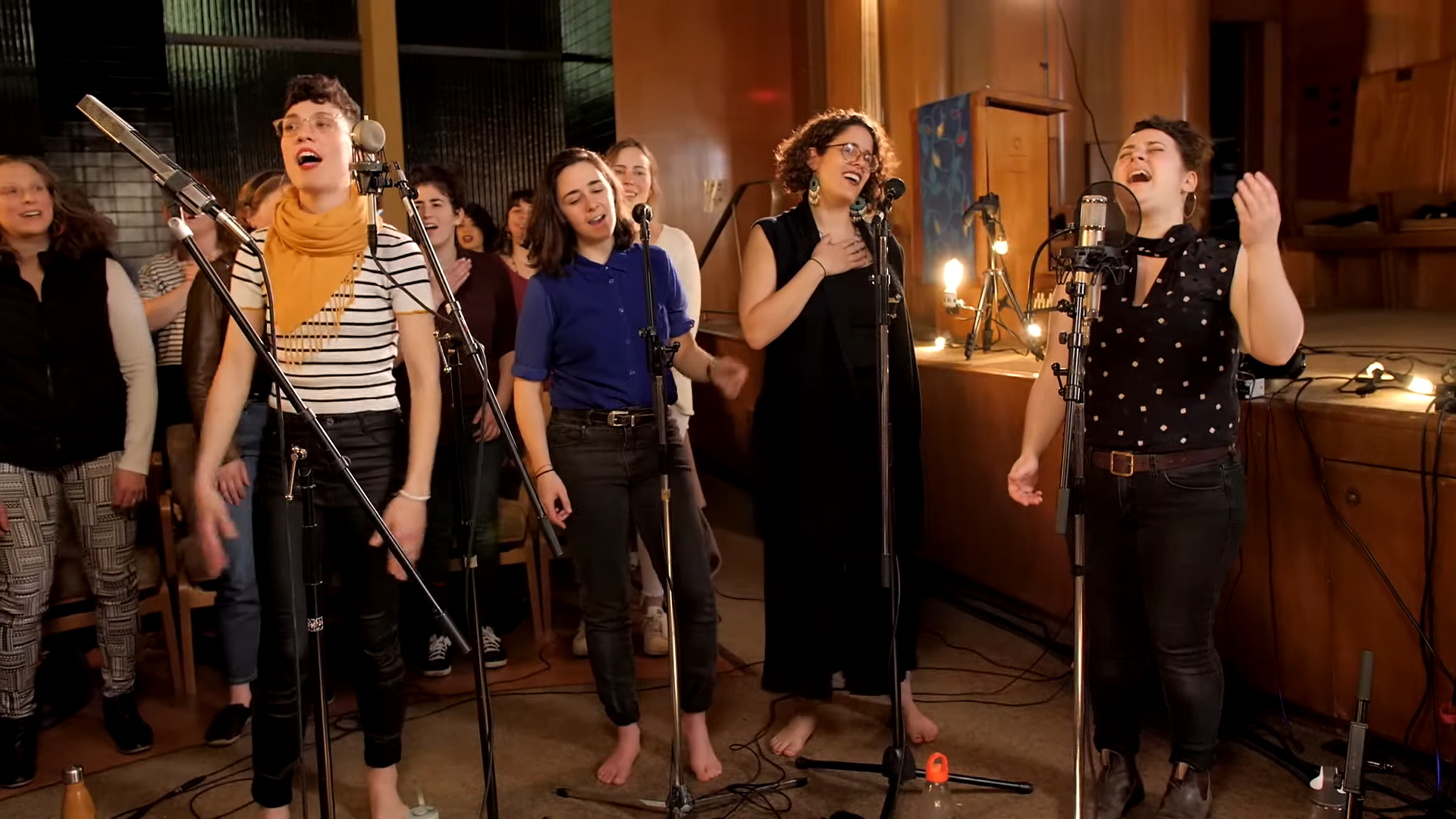A Musical Tu BiShvat Seder — Celebrate With More Than Just Fruit
Make Tu BiShvat special with music from Batya Levine and Aly Halpert
By Josh Fleet
Published Feb 1, 2023

Like many Jewish traditions, Tu BiShvat (15th day of the Hebrew month of Shevat), the Jewish New Year for the trees, is grounded in harvesting practices and changing seasons. The holiday’s ritual seder was popularized by 16th-century rabbis living in Tzfat, an ancient city about 100 miles north of Jerusalem.
Much like the widely observed Passover seders that are centered on the eating and drinking of certain symbolic foods in a specific order, the Tu BiShvat seder involves eating different fruits and nuts as well as drinking four cups of wine (or grape juice) in a specific order. These rituals are rooted in explorations of both the mystical and natural worlds derived from the Jewish mystical tradition of Kabbalah.
Attempting to understand the four worlds of the traditional Tu BiShvat seder — Assiyah, Yetzirah, Briyah, and Atzilut — and their associated characteristics (seasonal, elemental, botanical, and more) can be a subtle, confounding task.
So instead of (or in addition to!) diving deep into these Hebrew prayers or esoteric teachings, hum along to the melody, or simply enjoy it — and sway along (like a tree) — for a powerful, embodied way to experience this holiday.
The opening melody of this musical ritual for the new year of the trees is simple called “Tu Bishvat,” a wordless nigun (spiritual melody) by Batya Levine.
Tu BiShvat typically occurs around the same time as Shabbat Shirah (Shabbat of Song), when Jewish communities read the Torah portion of Beshalach which recounts the Israelites’ jubilance after crossing the sea to freedom from Egyptian slavery. There is an old tradition to feed birds before Shabbat Shirah in acknowledgment of their song, which is said to have inspired this spontaneous singing on the shores of the Reed Sea.
Aly Halpert’s “Baby Bird Nigun” is another wordless melody appropriate for a holiday that looks toward the onset of spring from the depths of winter, for a ritual that insists upon the renewal of creation even as the trees themselves appear lifeless and bare.
Listen to the rest of the Tu BiShvat album curated by Hadar’s Rising Song Institute and the full musical Seder.
Josh Fleet is the Communications and Operations Manager at Hadar's Rising Song Institute, and based in Atlanta, GA.
Reflections
For the world of Assiyah
Action | Doing | Earth | Winter | Fruit with Outer Shell
When do you feel most rooted? What practices help ground you? Think about a time when an obstacle stood in the way of something nourishing. How did you break through that outer shell?
For the world of Yetzirah
Formation | Feeling | Water| Fruit with Pit
When do you feel most flexible? What practices help you get into the flow? Think about a time when something nourishing led to a difficult challenge. How did you deal with that inner pit?
For the world of Briyah
Creating | Thinking | Air | Summer | Wholly Edible Fruit
Describe an ongoing creative project. Describe a vision for something you would like to create in the future. What would it look like to move from idea to reality without difficulty?
For the world of Atzilut
Emanation | Being | Fire | Fall | Fruit for Smelling
When do you feel overwhelmed? What practices help you deal with burn-out or anxiety? Think about a time when you were confused by the circumstances of your reality. Is there value in not knowing?
Want more?
Get curated JewishArts.org content in your inbox


